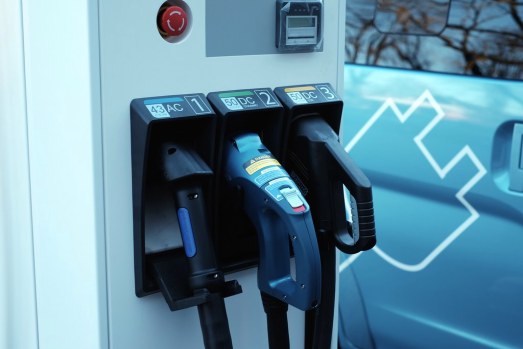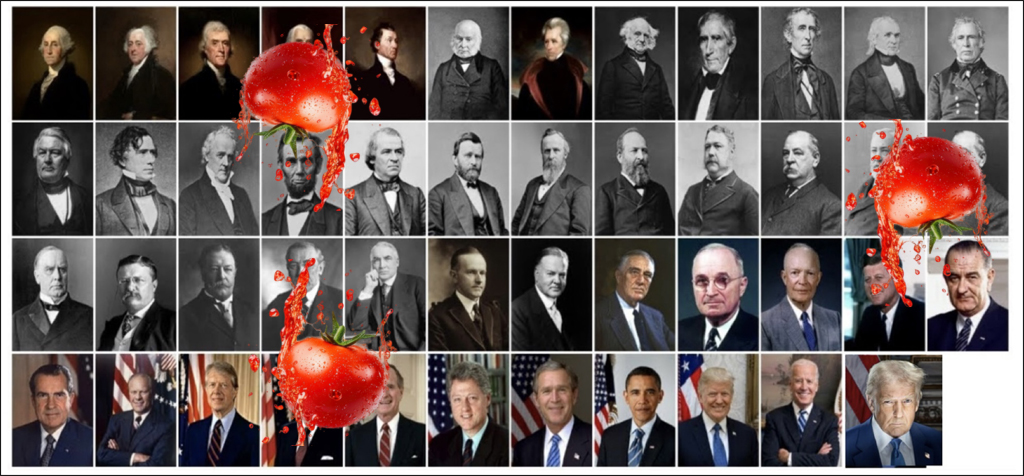Cities are rushing to tap the large pool of federal infrastructure funds to electrify transportation. In New York City, the Department of Transportation is running a pilot to install 120 charging stations on sidewalks for cars parked at the curb, while the New York Police Department is slated to buy 250 Teslas (on top of 160 electric Mustangs).
Such first steps demonstrate good intentions amid this once-in-a-century opportunity to replace our automotive infrastructure. But given the historic transformation, we must think holistically, adjusting for technology evolution and its unintended consequences — and we should not enshrine a technology that encourages car use.
Electric-charging technology is evolving rapidly: Most electric vehicles deliver at least 200 miles between charges. In 2021, the Swiss company ABB launched Terra 360, a charger it claims can offer 62 miles of range in under three minutes. A group of 15 carmakers wrote U.S. Transportation Secretary Pete Buttigieg in December asking the federal government to direct states to prioritize investments in 350-kilowatt charging stations for a “future-proofed” network. Such high-power devices would provide quicker charging for cars. Such a system would allow charging in gas stations among other private venues — which is where it ought to be.
Charging at the curb would encourage car use by making it more convenient and inexpensive. It also would make parking at the curb more permanent, which would prevent installation of bike and bus lanes, open streets and restaurants, trash corrals, etc. It also would convert automotive refueling from what is now a private transaction on a private space (a gas station) to one that allocates yet more free public space (at the curb and the sidewalk) to the automobile.
These are portentous decisions.
The city must take this opportunity to rethink the automotive ecosystem and come up with a better plan that is consistent with the “Streets for People” agenda.
Look outside & imagine each car is electric.
Cars would still dominate 75% of NYC street space.
Drivers would still contribute to traffic violence.
Buses, which low-income commuters especially rely upon, would still be in traffic.
We can't accept this future for our cities. pic.twitter.com/xWaorPAWuV
— Transportation Alternatives (@TransAlt) April 22, 2021
Is it even necessary to charge EVs at the curb?
There are only seven gas stations left in Manhattan below 96th Street, which shows that refueling needs are minimal for residents and visitors alike. Seventy-seven percent of Manhattan households do not even include a car — and only 6 percent of residents commute alone in a car and would therefore need to top off their batteries on a regular basis. (Topping off takes an average of 30 minutes.) In Manhattan, these 99,360 car commuters have access to 176,523 off-street public parking spaces to do so (as well as private parking garages in buildings). This wealthier segment of the population clearly does not need the curb in order to charge their EVs.
Outside of Manhattan, many of the roughly 900,000 people who commute alone by car would typically charge their EVs at home, overnight, when the rates are lower, generally in their garages or driveways, and would have enough range for a round trip. Alternatively, an ample inventory of off-street parking spaces could absorb the demand: private detached garages, driveways, parking companies, surface parking lots, and municipal garages.
Wait. Why should people who buy electric cars get free parking? Shouldn't we encourage people to go car-free? https://t.co/v7fOx2plah
— Doug Gordon (@BrooklynSpoke) May 11, 2017
Instead of installing EV charging stations at the curb, the city should incentivize garages and parking lots to offer charging at 100 percent of their spaces and reduce fees for such activity. Department stores, malls, airports and sports arena parking lots are perfect places to start.
More than half — 2,219,000 or 55 percent — of cars in the city are not used regularly, just weekly or monthly. These cars, therefore, contribute much less to pollution, so they are a lower priority for electrification. Moreover, there is no justifiable rationale for permanently privatizing public space in order to charge a car once a week.
Thus, the top priority should be to electrify every off-street facility, not to install EV chargers on sidewalks, even if it is the preferred method of Con Edison.
Electrifying cars is the right thing to do, but there remain many crucial deficiencies of the automotive infrastructure in New York: too many cars, oversized vehicles such as SUVs and pick-ups, dangerous drivers, and use of the curb for private auto storage.
In converting to electric, the city must not repeat the mistakes of the past by making it easier to drive a car, even if it is an electric one.







